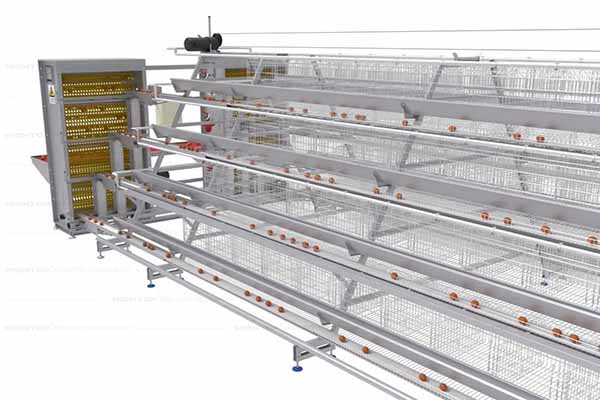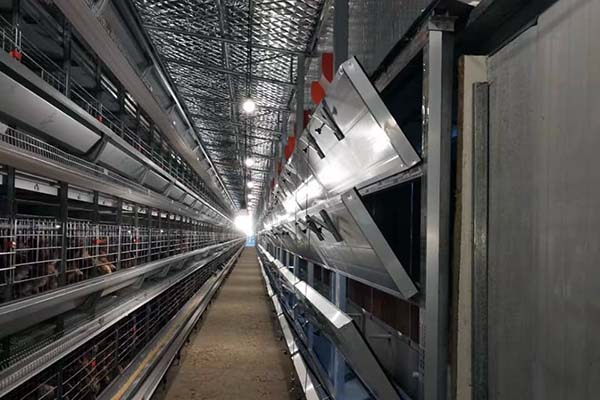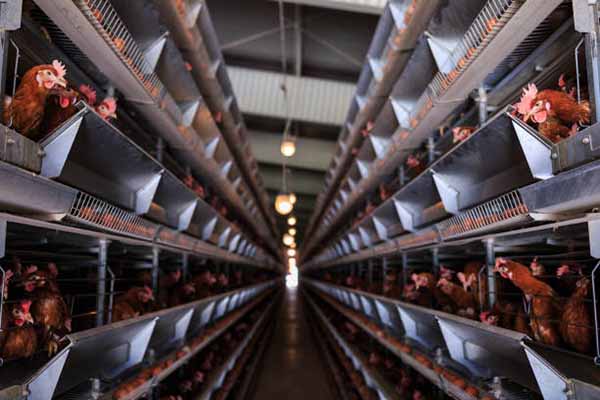Poultry Farming for Beginners in Kenya: A Comprehensive Guide
Time : 2025-05-13
Embarking on the journey of poultry farming in Kenya can be both exciting and challenging. If you’re new to this venture, you’re in the right place. This guide will walk you through the basics, help you avoid common pitfalls, and set you on the path to a successful poultry farming business.

Understanding the Poultry Farming Industry in Kenya
Kenya’s poultry industry has been growing steadily over the years, driven by the increasing demand for poultry products. As a beginner, it’s important to understand the market dynamics, the types of poultry you can raise, and the regulations you need to adhere to.
Types of Poultry You Can Raise
When starting out, you have several options. The most common types of poultry raised in Kenya include:
- Broiler Chickens: Raised primarily for meat, these birds grow quickly and can be ready for market in about 42 days.
- Layer Hens: These hens are bred for their egg-laying capabilities and can start laying eggs at around 18 weeks of age.
- Turkey and Duck Farming: While less common, turkey and duck farming can also be profitable, especially if you have the space and resources to raise them.
Setting Up Your Poultry Farm
Before you start, you need to have a clear plan for your poultry farm. Here are some key considerations:
Location and Site Selection
Choose a location that is easily accessible, close to your market, and has good water and transportation facilities. Ensure the site has adequate space for expansion and that it’s not prone to flooding or strong winds.
Building and Equipment
Your farm should have a secure, well-ventilated building that protects the birds from predators, extreme weather conditions, and diseases. The equipment you’ll need includes:

- Feeders and Drinkers: Automated systems that provide food and water to the birds.
- Brooders: Devices that keep chicks warm in their first few weeks.
- Pens and Coops: For housing the birds, ensuring they have enough space to move around and are well-ventilated.
- Health Equipment: Such as disinfectants, vaccination kits, and medications for treating common diseases.
Feeding and Nutrition
Proper nutrition is crucial for the health and productivity of your poultry. Here’s what you need to know:
Choosing the Right Feed
Broiler and layer hens have different nutritional requirements. Make sure to use feeds that are specifically formulated for their stage of growth and production. You can purchase feeds from local suppliers or mix your own, depending on your budget and resources.
Feeding Schedules
Follow a feeding schedule that provides the birds with the right amount of feed at the right time. Overfeeding can lead to obesity and other health issues, while underfeeding can reduce productivity.
Health Management
Preventing and managing diseases is a vital part of poultry farming. Here are some tips:
Vaccination
Regular vaccination is crucial for protecting your flock from common diseases. Consult with a veterinarian to develop a vaccination schedule that suits your specific needs.
Sanitation and Biosecurity
Keep your farm clean and free from pests and rodents. Implement biosecurity measures, such as separating new birds from the existing flock and regularly disinfecting the farm and equipment.
Monitoring and Treatment
Regularly monitor your birds for signs of illness and treat them promptly. Early detection and treatment can prevent disease outbreaks and reduce losses.
Marketing Your Poultry Products
Once you have a productive flock, you need to find ways to sell your products. Here are some marketing strategies:
Direct Sales
Sell your poultry products directly to local markets, restaurants, or through farmers’ markets. This method allows you to maintain a direct relationship with your customers and adjust your production to meet their needs.
Wholesale
Consider selling to wholesalers or retailers who can distribute your products to a wider market. This can increase your sales volume but may require you to be more flexible with pricing and delivery schedules.

Conclusion
Poultry farming can be a rewarding and profitable business venture in Kenya. By following this guide, you’ll be well on your way to establishing a successful poultry farm. Remember to start small, learn as you go, and always stay informed about the latest trends and best practices in the industry.











